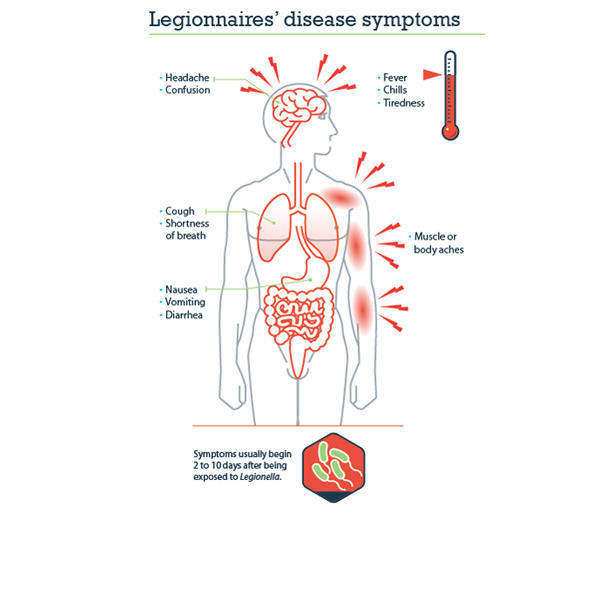
What is Legionella? How does it spread?

By Julie Jordan
Published July 19, 2019
An outbreak of Legionella recently occurred at a hotel in Atlanta. Guests were told to evacuate the hotel until the source of the bacteria was determined and remediation was complete. Currently, six guests have been treated for Legionnaires’ disease from this outbreak.
What is Legionella? How does it spread?
Legionella is a naturally-occurring bacteria found in the environment. Most often it is in fresh water like lakes and streams. Sometimes it can grow and spread in manmade building water systems. Legionella grows best in warm water, and it can be found in shower heads, faucets, hot tubs, cooling towers, hot water tanks, decorative fountains and plumbing systems.
Legionellosis case reports have increased in Georgia over the past several years, which is consistent with national legionellosis trends.
Legionnaires’ disease is a very serious type of pneumonia (lung infection) caused by Legionella bacteria. People can get Legionnaires’ disease when they breathe in small droplets of water in the air that contain Legionella. Typically, the bacteria do not spread from one person to another. (Outbreaks occur when two or more people become ill following shared exposures, such as patients in hospitals, nursing homes and long-term care facilities.) Legionnaires’ disease is treated with antibiotics. Symptoms of Legionnaires’ disease can include:
- Fever
- Chills
- Cough
- Shortness of breath
Most healthy people exposed to Legionella do not get sick. The majority who do get sick need care in a hospital but make a full recovery. Legionella bacteria can also cause a less serious illness called Pontiac fever. Pontiac fever is a milder respiratory disease that does not include pneumonia. This form of the disease usually resolves on its own.
People at increased risk of getting sick are 50 years or older, current or former smokers, people with chronic lung disease or weak immune systems.
If you suspect you may have been exposed to Legionella bacteria and are experiencing symptoms, please visit your health care provider.
To protect yourself and your family from Legionella take the following precautions.
Use humidifiers and all respiratory equipment properly:
- Always use sterile and/or distilled water
- Change the water after each use
- Clean the humidifier every three days
- Change the filters on a regular basis
- Follow manufacturers’ cleaning recommendations
Be sure to routinely clean at-home whirlpools and hot tubs according to manufacturers’ recommendations. Also, properly measuring and maintaining safe disinfection levels is important in preventing Legionella growth. Protect yourself and others from Legionella in hot tubs and spas. Legionella can also be found in gardening soils, potting mixes, and mulches. After use, wash your hands with warm, soapy water thoroughly.
Home and car air-conditioning units do not use water to cool the air, so they are not a risk for Legionella growth.
To learn more about Legionella, please visit https://dph.georgia.gov/legionellosis.